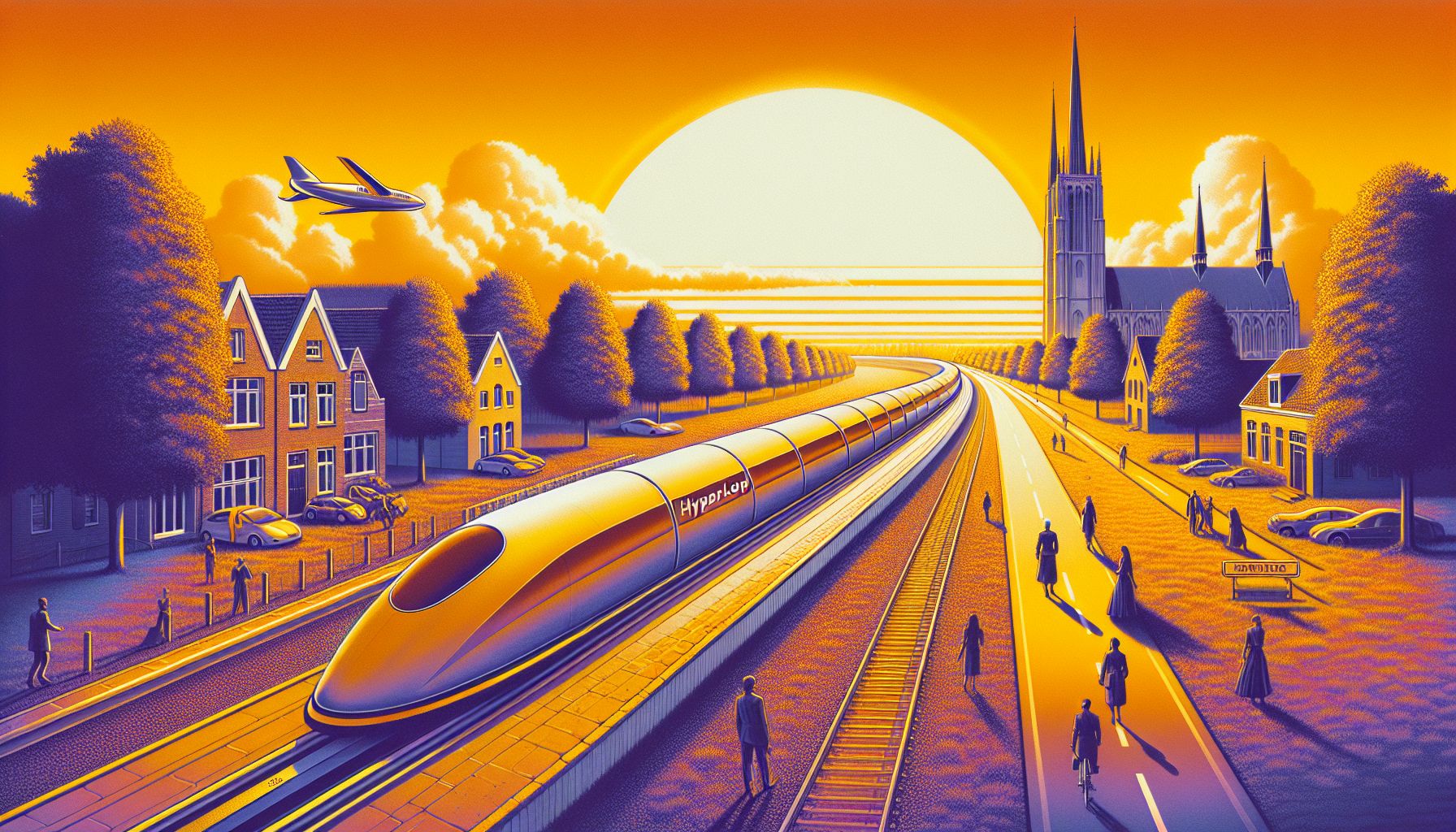European Hyperloop Milestone: First Vehicle Test Succeeds in Veendam

Veendam, Tuesday, 10 September 2024.
Hardt Hyperloop successfully tested its vehicle at the European Hyperloop Center in Veendam, Netherlands. The pod traveled 90 meters at 30 km/h, demonstrating magnetic levitation and propulsion in near-vacuum conditions. This breakthrough paves the way for ultra-fast, sustainable continental travel, with Amsterdam to Berlin potentially reachable in 90 minutes by 2030.
A Leap Forward in Transportation Technology
The successful test of Hardt Hyperloop’s vehicle marks a pivotal moment for the future of transportation technology. Utilizing magnetic levitation and propulsion within a vacuum environment, the hyperloop system promises to revolutionize travel by significantly reducing transit times between major cities. The test, conducted on 9 September 2024 during the European Hyperloop Center Grand Event, showcased the vehicle’s ability to travel at nearly 30 km/h with an acceleration of 0.2G over a 90-meter distance[1][2].
Engineering Excellence and Collaborative Efforts
Hardt Hyperloop’s achievement is the result of extensive collaboration and engineering prowess. The European Hyperloop Center (EHC) in Veendam, Netherlands, features 34 connected hyperloop tubes, each with a diameter of 2.5 meters. The tubes, constructed from POSCO’s specialized steel and Tata Steel Netherlands, were assembled by Mercon and installed by Denys. The vacuum conditions maintained at 1 millibar are crucial for the operational efficiency of the hyperloop system[3][4].
Global Interest and Future Plans
The global interest in hyperloop technology is on the rise, with initiatives underway in Germany, Spain, Italy, Switzerland, Turkiye, India, and Saudi Arabia. Hardt Hyperloop plans to conduct full-speed tests (80-100 km/h) later this year, aiming for technology verification by next year. The European Union has recognized hyperloop technology in its Trans-European Transport Network (TEN-T) policy, emphasizing its potential to enhance connectivity among member states[5][6].
Economic and Environmental Benefits
Hyperloop technology offers numerous benefits over traditional transportation methods. It promises lower infrastructure costs compared to high-speed rail, simpler spatial integration due to its prefabricated modular pipes, and reduced land usage. Additionally, the energy consumption of hyperloop systems is ten times less than that of cars or airplanes, making it a more sustainable option for future travel. Ticket costs are expected to be comparable to low-cost airlines, potentially replacing short-haul flights and long drives across Europe[7][8].
Key Figures and Contributions
The test event was attended by notable industry representatives and officials, including Constantijn van Oranje from Techleap, Rinke Zonneveld from Invest-NL, and Henk Emmens from Groningen. Hardt Hyperloop extends its gratitude to its partners and investors, including the Province of Groningen and the Municipality of Veendam, for their support in achieving this milestone. The company’s founders, Tim Houter, Marinus van der Meijs, Mars Geuze, and Sascha Lamme, who were part of the TU Delft team that won the first SpaceX Hyperloop competition in 2017, continue to drive the innovation forward[9][10].
Bronnen
- www.duurzaam-ondernemen.nl
- siliconcanals.com
- www.hardt.global
- nl.wikipedia.org
- m.koreatimes.co.kr
- www.barrons.com

